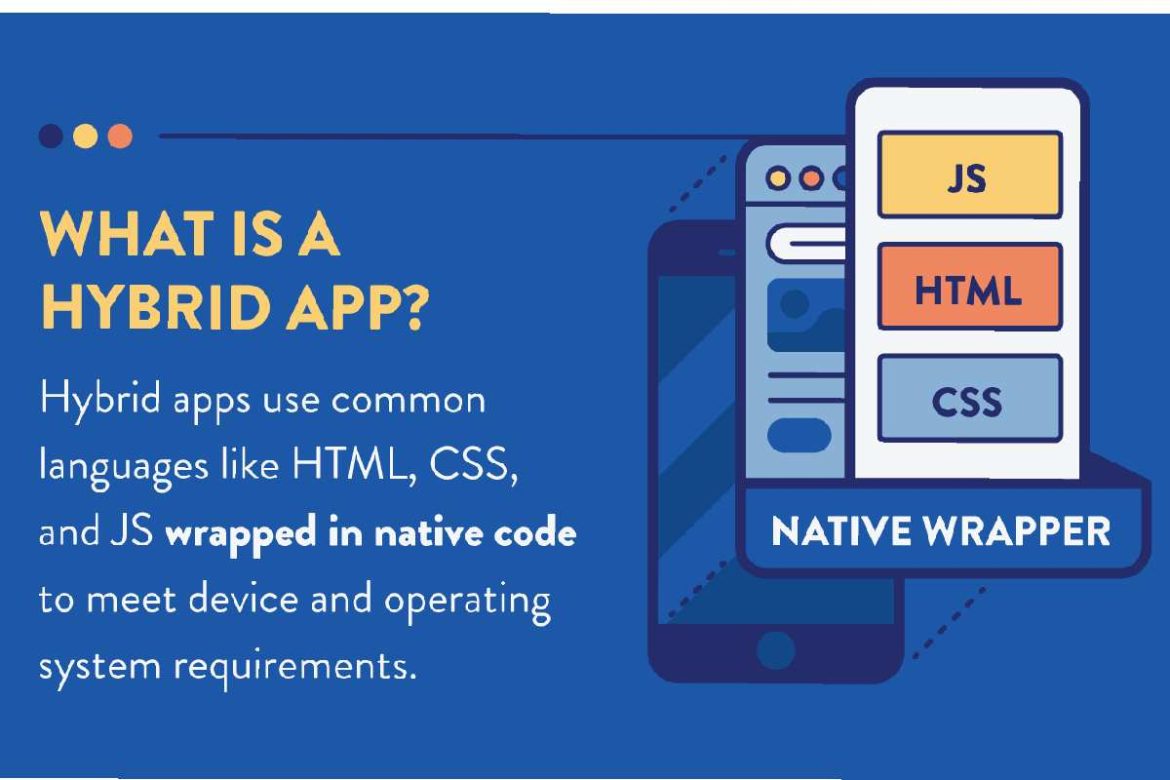What Languages are Used to Code Hybrid Application? – Instead of relying on PCs and laptops to access the web as was the case not long ago, there is a growing demand to access web content and work with mobile devices. This is where applications designed specifically for mobile devices (commonly known as applications or Apps) came into being.
We can call them Native Applications. The growth of native apps was incredible. The use of mobile applications alone constitutes the largest part of the total of computer applications. Native applications have become the dominant strategy for companies to offer their services. Users connect not only to access web content, to communicate and interact with the company, or to get work done, but also to build their brand and manage their customer relationship.
By native applications we mean applications written using the tools and APIs provided by hardware and mobile operating system providers such as Google and Apple. These are tied to a particular platform like Android or Apple iOS.
Although the native app development approach is currently dominant, it is not perfect.
To provide an alternative to the native app development approach, there are other approaches, the most popular one is Browser App approach. This approach is a response to the limitations of ‘separate sites’. It is based on the desire to run an application from any mobile browser. Supporting different devices and not depending on the platform. Development is based on open source standards, and with an emphasis on code reuse leveraging the “write once, run everywhere” concept.
However, the “browser app” approach has some shortcomings. For example, from a technical point of view, even though these browser apps could work on any mobile device, they are still not essentially true mobile apps. They cannot be downloaded because they are accessed from the web and run primarily from the browser. Therefore, they cannot work without an Internet connection.
But to solve this, the figure of Hybrid Applications emerged.
In recent years, hybrid mobile apps have become an emerging and promising alternative to native app development. This approach allows developers to create a single mobile app, called a hybrid app, that uses web standards and distribute it consistently across multiple mobile platforms with (minimum to) no changes. Hybrid mobile apps have many advantages. They allow developers to use standardized web technologies like HTML5, CSS3, and JavaScript. You also have the ability to access native APIs. The advantage of using standard web technologies is that there is a lower learning curve. Furthermore, some frameworks allow us to maximize development time by applying the “write once, run anywhere” concept. In general, no worries for “newbies” though as they can easily find several reliable hybrid app development services.
What languages are used?
Developers can write a hybrid app like a regular app, and access to native hardware components like camera, notifications, or local storage is achieved through native JavaScript APIs. The application is compiled into platform-specific native packages and is ready to use on the mobile device or to distribute in app stores. This is perhaps the biggest reason why there has been a rapid growth of hybrid mobile apps compared to native apps.
In contrast, hybrid apps are based on both a native app and a mobile web app. Like a mobile web app, it is written in HTML, CSS, JavaScript, but is compiled as a native app for distribution through app stores. From a user point of view, there is little difference between a native app and a hybrid app. Meanwhile, since the device has a web browser, a hybrid app can work just like a native app. From a development standpoint, a hybrid app is truly cross-platform.


